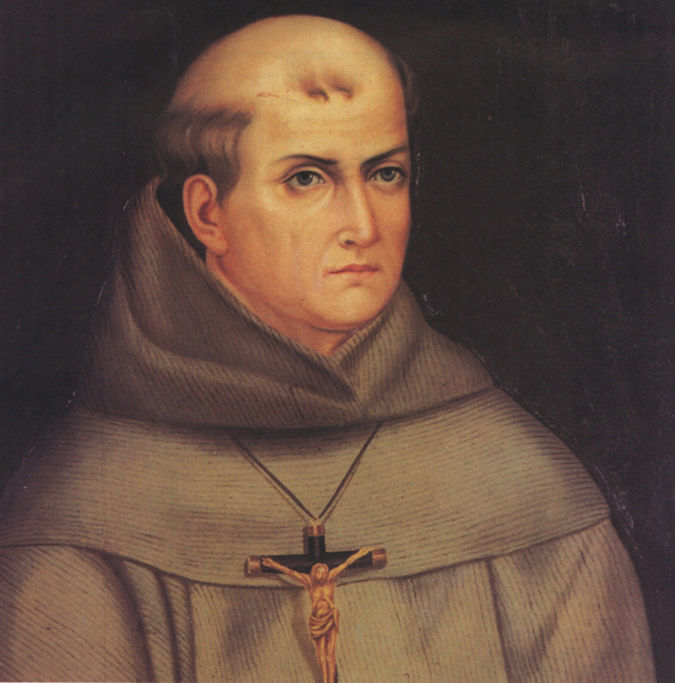Over the past several months, it seemed like a statue of the 18th century Franciscan missionary Blessed Junípero Serra would be kicked out of the U.S. Capitol forever. Serra faced accusations of mistreating Native Americans during his evangelization of present-day California.
But California Governor Jerry Brown offered a glimmer of hope during a visit to the Vatican last month, when he said the push to remove Father Serra from the Capitol was effectively dead.
Was Governor Brown’s assertion merely a gesture of goodwill ahead of the pope’s visit to the United States this fall? Or was it a sign that Americans were realizing Father Serra was actually a good and holy man?
“I think Father Serra is a hero, is a champion of human rights,” said Bill Donohue, president of the Catholic League. “Anyone who takes a fair look at this knows that where you have victims such as Indians, you’ve got to be careful when you make accusations as to who the victimizers are.
“To make grand sweeping statements that anyone who came into contact with the Indians mistreated them is simply wrong.”
Donohue is author of the new Q&A-style booklet “The Noble Legacy of Father Serra.” The booklet is the culmination of Donohue’s exhaustive research into the chief accusations against the soon-to-be saint. The Catholic League has distributed the booklets to all California lawmakers and parishes and Father Serra advocates believe the publication played a key role in shifting public opinion on Father Serra.
There’s very little question that Native Americans were mistreated in the 18th century. But Donohue said Spanish authorities are to blame, not Father Serra and his missionary companions.
The Franciscan priests, under Serra’s direction, vehemently opposed the Spanish colonialists’ attempts to resettle Native Americans in lands with limited resources. They also protested the Spaniards’ harsh punishment of crimes and sexual abuse of native women.
Father Serra and his missionaries did issue punishments for crimes, but Donohue stressed that those punishments were motivated by love and were more merciful than the punishments of the Spaniards.
Serra’s love for the Native Americans was never more apparent than in his reaction to an attack on the San Diego Mission in 1775. California natives burned the mission to the ground and even tortured and killed one of Father Serra’s brother missionaries. But Father Serra pleaded for the lives of the perpetrators when the Spanish colonialists called for the death penalty. He reportedly said, “Let him live so that he can be saved, for that is the purpose of our coming here and its sole justification.”
The California Gold Rush is also to blame for the mistreatment of Native Americans at the time. In fact, the greatest decline in the Native American population took place 50 years after Father Serra’s death and decades after the Franciscan missions dissolved. Between 1848 and 1860, the Native American population in the area dropped by 80 percent.
“If there was any attempt to exterminate the Indians, it can be laid squarely at the doorstep of the gold seekers,” Donohue wrote. “The single-minded pursuit of gold led to an all-out war on the Indians. Having no missionaries to protect them, they fell victim to exploitation and murder.”
In his booklet, Donohue also disproves accusations that Father Serra and the Franciscan missionaries enslaved the Native Americans, eradicated Native American culture and even treated Native Americans the same way that Hitler treated Jewish populations during World War II.
In the end, Donohue is convinced beyond a doubt that the Catholic Church is right to name Father Serra a saint.
“This is a proud moment for all Catholics and indeed for everybody who believes in human rights,” Donohue said.
He said today’s Catholics should model Father Serra’s fearless defense of natural law.
“One of the most important things we can learn [from Father Serra’s life] is the importance of natural law,” Donohue said. “People know in their heart of hearts when something is patently and egregiously wrong. That’s Catholic teaching and … we have a moral obligation to protect that which we know is innocent human life.
“Serra didn’t need any written, man-made law to tell him what to do. He knew instinctively that it was wrong to intentionally mistreat Indians and that’s why they loved him.”
Pope Francis will canonize Father Serra on Sept. 23 during a Mass in Washington D.C. “The Noble Legacy of Father Serra” is available for free download on the Catholic League’s website, www.catholicleague.org.

